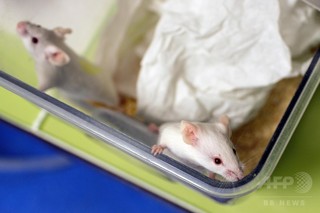Breast cancer metastasis, decreased with amino acid restriction Mouse experiment

"Metastasis" in which cancer cells spread to the lungs, the brain and other organs and bones and form tumors is known as an effect that leads to cancer death. The research team hopes for the possibility that a method to prevent cancer cells from diffusing from the site of occurrence in the female chest through this research result.
According to the research team, in this experiment using mouse, "asparagine" of nonessential amino acid was found to be the key in breast cancer spreading, he says.
Asparagine, which is a constituent unit of protein, is produced in every cell in the human body including cancer cells, and is also absorbed from foods such as beef, dairy products, chicken meat, fishes and shellfishes, asparagus and soybeans.
Greg Hannon of the Cambridge Institute for Cancer Research (UK Cambridge Institute), who is the main author of the paper, said in a mouse experiment that "changing the asparagine-producing ability of tumor cells or changing asparagine Metastasis could be reduced by either treating the mouse with an agent that reduces availability, or removing asparagine from the bait. "
Mr. Hannon said in an interview with AFP that metastasis has been halved when reducing asparagine contained in food given to mice. In combination with other methods to limit asparagine, metastasis was suppressed to about 1 / 20th.
■ "Potential for serious outcomes"
According to the research team, this research may be the first time that the change in diet was related to the in vivo action promoting spread of cancer.
Then, with asparagine-restricted diet, will it actually prevent tumor spread of cancer patients? About this, the research team rushes to conclude on the role of asparagine in human cancer, and recommends changing the meal is premature and calls attention.
Mr. Hannon stated that AFP's interview, "The research may be a serious outcome," while still requiring more research to be done in the future.
Just saying, "There is no guarantee that it can be replaced by humans," but adding promising signs showing that the same action as the mouse is working.